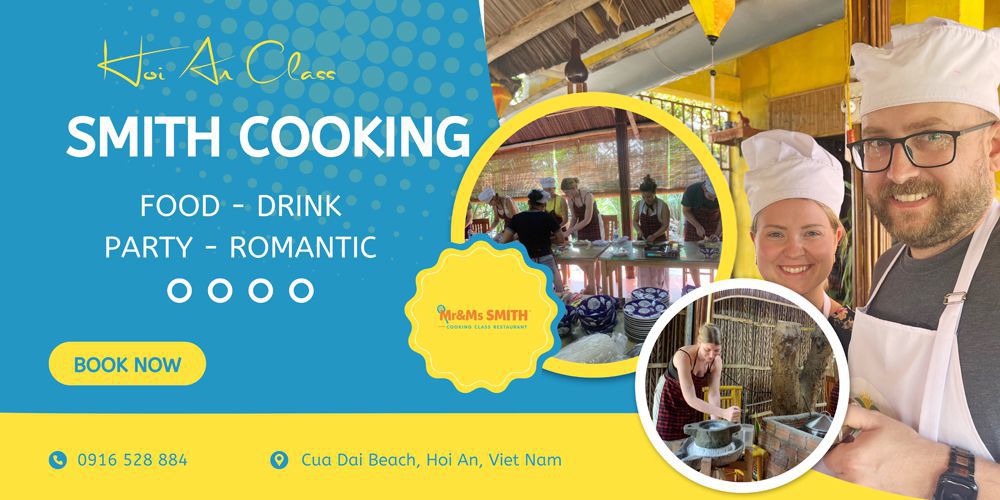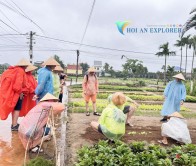Do Hoi An Cooking Classes Include Information About the Nutritional or Medicinal Properties of Ingredients?
Hoi An, a charming ancient town in Vietnam, is renowned for its rich culinary traditions. Travelers from around the world flock to this picturesque destination not only to admire its lantern-lit streets but also to immerse themselves in Vietnamese cuisine through engaging cooking classes.
For any further information about Hoi An Explorer, please contact via hotline 0905.223.343 (Ms.Tina)

One question many aspiring chefs and food enthusiasts ask is:Do Hoi An cooking classes include information about the nutritional or medicinal properties of ingredients? The answer is a resounding yes—many classes in Hoi An go beyond cooking techniques to explore the health benefits and nutritional values of local ingredients.
A Holistic Approach to Vietnamese Cooking
Hoi An cooking classes are designed to provide a comprehensive culinary experience. Instructors often share insights into how traditional Vietnamese dishes balance flavor and health. They highlight how ingredients are chosen not just for taste but also for their nutritional and medicinal properties. This holistic approach reflects Vietnamese cultural beliefs that food should nourish the body and support well-being.
For instance, you might learn how
- Turmeric is celebrated for its anti-inflammatory properties and digestive benefits.
- Lemongrass aids in digestion and is known for its calming effects.
- Fresh herbs like mint and basil are rich in antioxidants and contribute to a healthy immune system.
- Market Tours: Learning from the Source
Many Hoi An cooking class begin with a guided tour of local markets. These vibrant markets are the heart of Vietnamese culinary culture. During the tour, instructors often discuss how to select the freshest produce and explain the health benefits associated with each ingredient. For example:
- Morning glory (water spinach) is praised for its high iron content, essential for maintaining energy levels.
- Green papaya is highlighted for its digestive enzymes and vitamin C content.
- Chili peppers are explained in terms of their metabolism-boosting properties and rich vitamin A and C content.
- By understanding these nutritional aspects, participants gain a deeper appreciation for the dishes they prepare.
- Cooking with Purpose: Recipes for Health and Healing
In Cam Thanh cooking class, every recipe comes with a purpose. Instructors often share stories and cultural insights about how specific dishes are believed to support health. For example:
- Pho, a beloved Vietnamese noodle soup, is made with bone broth rich in collagen, which supports joint health.
- Goi cuon (fresh spring rolls) are packed with fresh herbs and vegetables, providing essential vitamins and minerals.
- Cao lau, a regional specialty, includes ingredients believed to promote digestive health and balance.
- Participants not only learn how to cook these dishes but also gain knowledge about how each component contributes to overall well-being.
The Role of Traditional Vietnamese Medicine
Vietnamese cuisine is deeply influenced by traditional medicine principles, which emphasize balance and harmony in the body. Many cooking classes in Hoi An incorporate these principles, discussing how:
Hot and cold ingredients are balanced to support bodily health. For example, seafood (considered cooling) is paired with warming spices like ginger.
Herbal infusions and teas are used for their therapeutic benefits, such as lotus tea for relaxation or ginger tea for digestive health.
This integration of culinary art and medicinal knowledge provides participants with a richer, more meaningful cooking experience.
Why Nutritional Knowledge Enhances the Culinary Experience
Understanding the nutritional and medicinal properties of ingredients enriches the cooking experience in several ways:
- Health-Conscious Cooking: Participants can recreate dishes at home with a focus on health and nutrition.
- Cultural Appreciation: Learning about the medicinal uses of ingredients offers deeper insights into Vietnamese culture and traditions.
- Mindful Eating: Knowledge of how ingredients benefit the body encourages mindful eating practices that support overall well-being.
In conclusion, Tra Que cooking class do more than teach you how to prepare delicious Vietnamese dishes. They provide a gateway to understanding the profound relationship between food, health, and culture. By exploring the nutritional and medicinal properties of local ingredients, these classes offer a holistic culinary journey that nourishes both the body and the soul.
If you’re planning a trip to Mr and Ms Smith cooking classes, enrolling in a cooking class that emphasizes these aspects will undoubtedly deepen your appreciation for Vietnamese cuisine and its healthful benefits. Whether you’re a seasoned cook or a curious foodie, the knowledge you gain will stay with you long after you leave this enchanting town.




